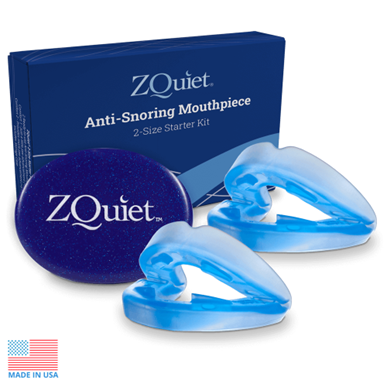In the hustle and bustle of modern life, productivity is often hailed as the ultimate goal, whether it’s in our professional careers, personal projects, or daily tasks. However, a silent thief lurks in the night, stealthily robbing millions of people of their energy, focus, and efficiency. This thief is none other than snoring, a common but frequently overlooked issue that affects a significant portion of the population. While snoring might seem like a mere annoyance to some, its effects on productivity can be profound and far-reaching. In this blog, we’ll explore how snoring impacts productivity and how anti-snoring devices can help reclaim lost efficiency.
The Direct Link Between Snoring and Productivity
Sleep Quality and Cognitive Function
Snoring is often a symptom of disrupted sleep patterns, including conditions like obstructive sleep apnea (OSA), which leads to fragmented sleep and, consequently, poor sleep quality. High-quality sleep, on the other hand, is essential for cognitive functions such as memory, attention, and creativity. When sleep is interrupted, the brain cannot effectively perform these processes, leading to decreased cognitive abilities the following day.
The Impact on Daily Energy Levels
A good night’s sleep is crucial for replenishing the body’s energy stores. Snoring, and the associated sleep disturbances, can lead to chronic fatigue, making it difficult to maintain energy levels throughout the day. This persistent tiredness can severely limit a person’s ability to stay productive, whether it’s meeting deadlines, solving complex problems, or simply managing day-to-day activities.
Emotional and Psychological Effects
The effects of snoring extend beyond physical tiredness, impacting emotional and psychological well-being. Chronic sleep deprivation can lead to mood swings, irritability, and decreased motivation—all of which can hinder productivity. Moreover, long-term sleep issues can increase the risk of developing anxiety and depression, further exacerbating productivity challenges.
The Ripple Effect on Professional Life
Decreased Work Performance
The cognitive, physical, and emotional toll of snoring can significantly affect one’s performance at work. Difficulty concentrating, slower reaction times, and a lack of creativity can lead to decreased efficiency, more mistakes, and lower overall work quality. For those in leadership or creative roles, the impact can be even more pronounced, affecting decision-making and innovation.
Increased Absenteeism and Presenteeism
Snoring and sleep disturbances can lead to higher rates of absenteeism, with individuals more likely to call in sick due to fatigue-related issues. Equally problematic is presenteeism, where employees are physically present but operating at reduced capacity. Both scenarios can have a substantial impact on productivity, affecting not just the individual but the entire team or organization.
Impaired Professional Relationships
The irritability and mood swings associated with poor sleep can strain professional relationships, affecting teamwork, communication, and collaboration. In environments where cooperation and interpersonal relationships are key, this can lead to a decline in productivity and a negative workplace atmosphere.
How Anti-Snoring Devices Can Help
Recognizing the profound impact of snoring on productivity, addressing the issue head-on can lead to significant improvements in both personal and professional life. Anti-snoring devices are designed to alleviate the symptoms of snoring, thereby improving sleep quality and, by extension, daytime productivity. Here are a few options:
The ZQuiet anti-snoring device isn’t just a solution for a quieter night; it’s a key ally in enhancing daytime work productivity. By effectively addressing snoring issues and promoting uninterrupted sleep, ZQuiet ensures users wake up feeling more refreshed and alert. The device’s innovative hinged design allows for natural jaw movement during sleep, reducing airway obstruction and preventing disruptive snoring. With improved sleep quality, users are better equipped to face the day with increased focus, energy, and overall productivity. The ZQuiet anti-snoring device thus becomes an integral part of a holistic approach to well-being, positively impacting both restful nights and productive workdays.
Lifestyle Adjustments
In addition to using anti-snoring devices, lifestyle changes such as weight management, regular exercise, and avoiding alcohol before bedtime can also help reduce snoring.
Conclusion
Snoring is more than just a nighttime nuisance; it’s a significant impediment to productivity, affecting millions of people’s professional and personal lives. By disrupting sleep quality, draining energy levels, and impacting emotional well-being, snoring can severely limit one’s ability to perform at their best. Fortunately, with the right interventions, including the use of anti-snoring devices and lifestyle changes, it’s possible to mitigate the effects of snoring, improve sleep quality, and enhance daytime productivity. If you or someone you know is struggling with snoring, exploring these solutions can be the first step toward a more productive, energetic, and fulfilling life.



